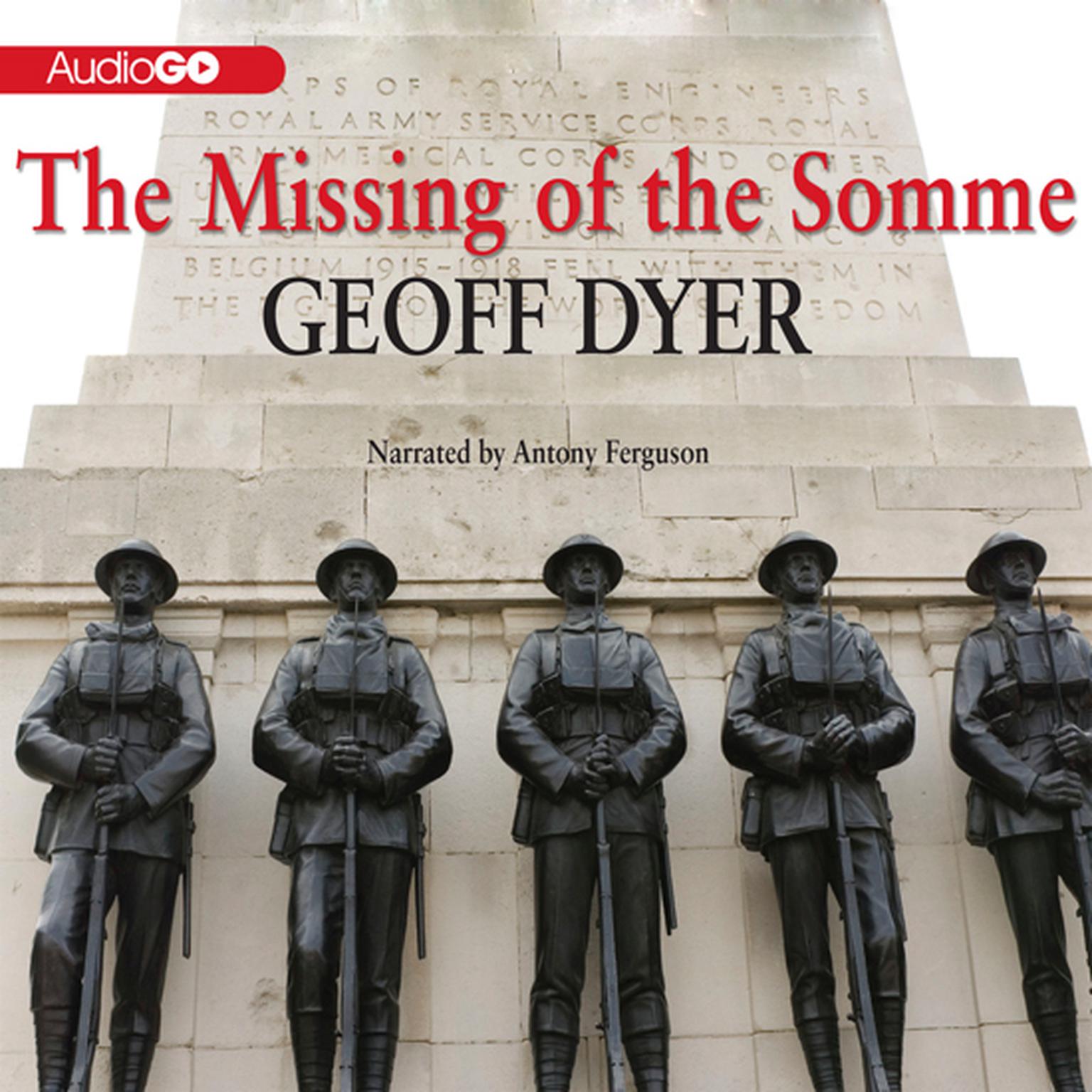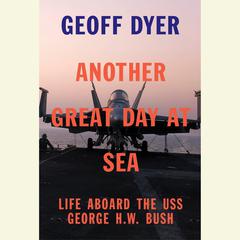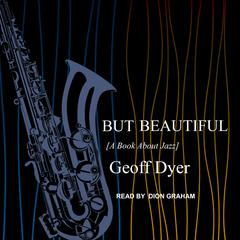 Play Audiobook Sample
Play Audiobook Sample
The Missing of the Somme Audiobook
 Play Audiobook Sample
Play Audiobook Sample
Quick Stats About this Audiobook
Total Audiobook Chapters:
Longest Chapter Length:
Shortest Chapter Length:
Average Chapter Length:
Audiobooks by this Author:
Publisher Description
Geoff Dyer has won fans writing about everything from jazz to D. H. Lawrence, from photography to neurotic enlightenment, from Cambodia to Rome. The Missing of the Somme, his remarkable book on the significance of the First World War, is a gem for Dyer fans and history buffs alike. With his characteristic wit and insight, here Dyer weaves a network of myth and memory, photos and film, poetry and sculptures, graveyards, and ceremonies that illuminate our understanding of, and relationship to, the Great War. From one of our most beloved authors, this is a personal meditation on war and remembrance.
Download and start listening now!
""During the war the dead were buried haphazardly, often in mass graves. By the time of the great battles of attrition of 1916-1917 mass graves were dug in advance of major offensives. Singing columns of soldiers fell grimly silent as they marched by these gaping pits en route to the front-line trenches." This book is first in my own march past the graves of the Great War, my father's war. It is brilliant and contemporary, awed in aspect and perspective. It helps me to understand the words he never said."
— David (5 out of 5 stars)
The Missing of the Somme Listener Reviews
-
" With the centenary of The Great War approaching I am sure there will be a revival of interest in literature related to it. Personally I like social histories of the individuals involved, and the untold stories of the common man and their role in history. I like Dyer, he is always interesting and has a very different perspective on the world to many others, his style is unconventional, whatever that actually is. this book is a meditation on remembrance, of the common man and the sacrifice made during the Great War and how we commemorate their memory. The First World War was really the first war where the individual's stories have been told rather than from the perspective of the Generals and Colonels in charge and the sweep of politics, and I guess the first conflict in modernity that was well reported and broadcast. Dyer does lose his way here at times, and goes off on a ramble, but throughout it is an interesting insight in to our collective memory and how we choose to celebrate, commemorate and remember. Like all history it is being constantly revised, no doubt over the next few years there will be new interpretations of The Great War. "
— Mark, 2/16/2014 -
" I thought this was beautiful and poetic. It's more like an essay that's partly autobiographical and partly historical and partly philosophical. It sounds like it could be self-indulgent but it's not. It's wonderful. "
— Joanie, 2/7/2014 -
" A very poignant study of the Great war (First world war) and aftereffects through all the post war symbols like memorials, art, cemetery, literature etc. This is an anti-war war literature. A brilliant work. "
— Aravind, 1/17/2014 -
" At first this felt like a bit of a "Things They Carried" rip-off, but once Dyer actually delves into the history, he presents a fascinating analysis of the remembrance and commemoration of WWI, and its importance in the modern British mindset. "
— Hannah, 1/4/2014 -
" Superb narrative infused with perception and criticism. Focus rich with various elements: cultural comments, revision, literary analysis. Surprising! "
— Isidro, 11/2/2013 -
" Interesting look at WWI and what it's come to mean "
— Laurel, 10/14/2013 -
" A thoughtful approach to war "
— Gene, 5/16/2013 -
" I wish I'd known about this book when I directed Journey's End. Dyer is sympathetic, without being sentimental, and the result is an honest account of how we memorialize great tragedy. "
— Chas, 2/7/2013 -
" Very similar to The Great War and Modern Memory, only more so. "
— Scott, 1/1/2013 -
" Geoff Dyer is always interesting... always worth the read. "
— Garry, 11/28/2012 -
" This book discussed memorials based on the horrific casulaties in the Great War (WWI). It was very disjointed to read and depressing. "
— Jim, 10/26/2012 -
" History, literary criticism, and travelogue all in one. A vitally important view of a vitally important moment for framing the remainder of the 20th century. "
— Aaron, 6/29/2012 -
" Geoff Dyer is his own literary form. This reflection on the Great War, the act of rememberance itself, is a part meditation, part rage, and all beautifully rendered. "
— Ann, 4/17/2012 -
" Much of this short book is rather rambling and impressionistic and frankly I didn't really care for it. The third star here is for the final few pages about the author's visit to Thiepval, the memorial to the men of the title (over 70,000 of them), which are quite stunning. "
— Steph, 1/1/2012 -
" An elegant examination of "remembrance" of the Great War. One of the best books I've read. "
— Oliver, 12/22/2011 -
" Much of this short book is rather rambling and impressionistic and frankly I didn't really care for it. The third star here is for the final few pages about the author's visit to Thiepval, the memorial to the men of the title (over 70,000 of them) and are quite stunning. "
— Steph, 11/2/2011 -
" Superb narrative infused with perception and criticism. Focus rich with various elements: cultural comments, revision, literary analysis. Surprising! "
— Isidro, 8/25/2011
About Geoff Dyer
Geoff Dyer is the award-winning author of many books, including the essay collection Otherwise Known as the Human Condition, which won the National Book Critics Circle Award for criticism. He is a fellow of the Royal Society of Literature and a member of the American Academy of Arts and Sciences,. He is writer-in-residence at the University of Southern California.
About Antony Ferguson
Antony Ferguson, Earphones Award–winning narrator, was born in London. He has performed successfully on both sides of the Atlantic and has played many leading roles in theater, film, and television.








